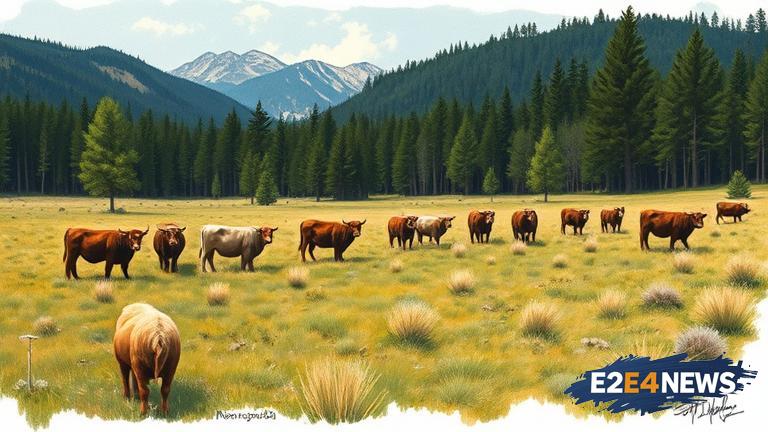New Zealand, known for its lush green landscapes and vast agricultural lands, is facing a unique challenge as pine forests continue to encroach on grazing land, posing a significant threat to the country’s sheep farming industry. The expansion of pine forests has been rapid, with many farmers selling their land to forestry companies, which has resulted in a substantial decrease in available grazing land. This has left many farmers struggling to maintain their sheep population, as they are forced to search for alternative grazing land. The situation has become so dire that some farmers have been forced to reduce their flock size, while others have had to abandon sheep farming altogether. The New Zealand government has been criticized for its handling of the situation, with many farmers feeling that their concerns have been ignored. The government’s decision to prioritize forestry over farming has been seen as a major contributor to the problem. Despite the challenges, many farmers remain committed to their livelihood and are exploring alternative solutions, such as agroforestry, which involves integrating trees into their farming systems. However, this approach requires significant investment and expertise, making it inaccessible to many small-scale farmers. The impact of the pine forest expansion is not limited to the farming industry, as it also affects the local economy and community. Many rural towns rely heavily on farming and forestry, and the decline of the sheep farming industry could have far-reaching consequences. The New Zealand government has announced plans to review its forestry policies, but many farmers remain skeptical about the effectiveness of these measures. The situation highlights the need for a balanced approach to land use, one that takes into account the needs of both the farming and forestry industries. As the debate continues, one thing is clear: the fate of New Zealand’s sheep farming industry hangs in the balance. The country’s farmers are fighting to preserve their livelihood, and it remains to be seen whether their efforts will be enough to save the industry. The expansion of pine forests has also raised concerns about the environmental impact, as the trees can alter the local ecosystem and affect biodiversity. Furthermore, the loss of grazing land can lead to soil erosion and decreased water quality. The New Zealand government must consider these factors when developing its forestry policies, to ensure that the country’s natural resources are protected. In addition to the environmental concerns, the situation also has social implications, as many rural communities rely on farming and forestry for their livelihood. The decline of the sheep farming industry could lead to significant social and economic disruption, highlighting the need for a comprehensive approach to addressing the issue. The New Zealand government must work closely with farmers, forestry companies, and local communities to develop a solution that balances the needs of all stakeholders. This could involve providing support for farmers to adopt agroforestry practices, as well as implementing policies to regulate the expansion of pine forests. Ultimately, the key to resolving the issue lies in finding a balance between the farming and forestry industries, one that prioritizes the needs of both while protecting the country’s natural resources. The situation serves as a reminder of the complex relationships between land use, economy, and environment, and the need for careful planning and management to ensure sustainable development. As the world grapples with the challenges of climate change, environmental degradation, and economic uncertainty, the story of New Zealand’s farmers and their struggle to preserve their livelihood serves as a powerful reminder of the importance of responsible land use and sustainable practices.
